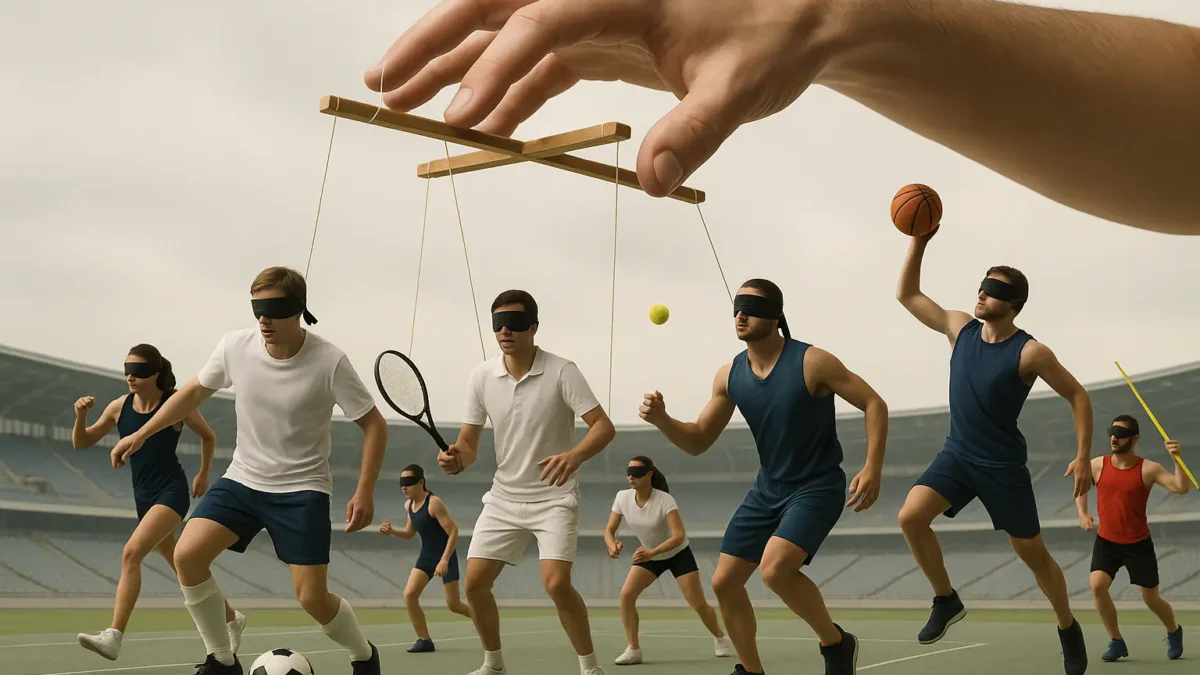Lithuanian Anti-Doping Agency implemented the UNESCO project "Risks of Food Supplements"
2024-07-19
Agency representatives at an international seminar on the implementation of the Macaolino Convention
2025-03-27Sportradar, the global sports match monitoring agency, has published a study on the top trends in match-fixing for 2024. The agency claims to have identified more than 1,100 suspicious matches last year, covering more than 10 different sports. The Lithuanian Anti-Doping Agency says the problem is still not solved in our country.
Sportradar survey highlights
In 2024, Sportradar identified 1108 suspicious matches in 12 sports. Suspicious matches were recorded in 95 countries. Compared to 2023, the number of suspicious matches detected has decreased by 17% (1331 suspicious matches in 105 countries in 2023).
Football continues to have the highest number of attempts to manipulate the results of sporting competitions. With 721 suspicious matches recorded in 2024, this sport is well ahead of basketball in second place (187 suspicious matches in 2024). 69 suspicious matches were recorded in tennis, 41 in table tennis, 32 in e-sports, 29 in volleyball and 15 in cricket.
The overall frequency of suspicious manipulation (taking data from all sports) has improved to 1 suspicious case per 615 matches per year (compared to 1 suspicious case per 467 matches in 2023).
Europe remains the continent with the highest number of suspicious sports meetings. Last year, 439 were recorded here, compared to 310 in Asia and 245 in South America. Africa (69 cases), North America (43 cases) and Oceania (2 cases) follow.
Europe also sees the biggest drop in suspicious matches in 2023, with 229 fewer suspicious matches than in 2023.
In 2024, Sportradar significantly improved its artificial intelligence capability to detect potentially illegal agreements in sports competitions. Last year, four sports - handball, table tennis, tennis and volleyball - were the most heavily tracked and analysed by artificial intelligence.
"The cooperation between Sportradar and betting operators (in particular in the monitoring and analysis of current account-level betting data) has been a key factor in the detection of 55% of potential manipulations last year (51% in 2023).
In 2024, Sportradar data resulted in 104 sanctions against natural and legal persons who violated the principle of the integrity of sport. This happened in 7 sports and 15 countries.
In Lithuania, the problem also manifests itself in various forms and intensities
In Lithuania, the Lithuanian Anti-Doping Agency is the coordinator of the fight against match-fixing. Aleksandras Kovalenka, the agency's spokesperson on coordination of sport competition manipulation, says that last year the agency received 10 reports of possible manipulation of sport competitions in Lithuania.
"We have received 10 reports of suspicious sports meetings in our country. Currently, 3 pre-trial investigations are underway, where the Lithuanian Anti-Doping Agency provides practical, methodological, expert, coordination and other assistance.
As a result of the reports we received, we contacted the relevant Lithuanian and European sports federations, the police, the General Prosecutor's Office, and supervisory authorities 13 times.
Importantly, the Agency is regularly involved in discussions with law enforcement authorities and sports federations on the issue of match-fixing. We provide information on the phenomenon of match-fixing, how to identify it and how to combat it.
I would like to see the Lithuanian sports community be more active in the fight against this manipulation of sports competitions. Last year, we sent a proposal to all 70 Lithuanian sports federations to sign a cooperation agreement, but only 22 organisations responded to this invitation.
As an example to other sports organisations in the country, I can mention the Lithuanian Football Federation. We are actively cooperating with it, and the federation is taking preventive measures and actions to curb manipulation of results.
"Sportsradar's research shows that match-fixing is still a major global problem, and unfortunately it is still present in Lithuania in various forms and intensities. This has a significant negative impact on sport. We need to realise that only through the joint efforts of the sporting community, state institutions, the media and business can we overcome this cancer that plagues sport", says Mr Kovalenka.






